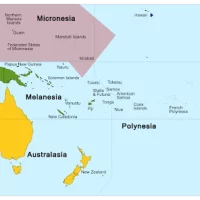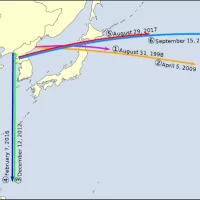Afghanistan has had a long history of living under foreign rule. Once a protectorate of the British Empire, Afghanistan became fully independent in 1919, but its vulnerable monarchy led by King Zahir Shah was unable to unite the country’s many ancestral tribes into a central government. This set up the conditions for internal political instability. The monarchy… Read More " The Afghan Revolution of 1978: Invitation to Invasion"
To be Young, Rich and Ambassador to Paris in the ’50s
C. Douglas Dillon was a politician and diplomat who served as U.S. Ambassador to France in the critical post World War II period, 1953-1957, and later as Under Secretary of State and Treasury Secretary. Son of a wealthy investment banker, Dillon graduated from Groton and Harvard, served in the U.S. Navy during World War II,… Read More "To be Young, Rich and Ambassador to Paris in the ’50s"
Wait ‘til the Winter: Iran, Iraq and the Kurdish Rebellion
Iraqi Kurds are scheduled to hold a referendum on independence in September, 2017. The Kurdistan region of about five million people already has a great deal of autonomy, with its own parliament and armed forces, but relations with the central Iraqi government have become increasingly strained in recent years. This latest development tracks with a… Read More "Wait ‘til the Winter: Iran, Iraq and the Kurdish Rebellion"
CNN, Tanks, and Glass Walls: The August 1991 Coup
In August of 1991, hard-liners opposed to Soviet President Mikhail Gorbachev initiated a coup attempt to overthrow him. The rebellion occurred in part because of financial strife as the Soviet Union transformed quickly from a statist to a market-based economy. Long lines formed for essential goods including medicine and fuel, and grocery shelves were empty.… Read More "CNN, Tanks, and Glass Walls: The August 1991 Coup"
The Lion King of Swaziland
King Sobhuza II was proclaimed King of Swaziland at the age of four months and would rule for 83 years, becoming the world’s longest-reigning monarch. His grandmother, with help from his uncle, acted as regent of Swaziland until his coronation in December 1921, when his name was changed to Ngwenyama, which means “The Lion.” Sobhuza’s… Read More "The Lion King of Swaziland"
The Rough Road to Moscow for Malcolm Toon
Malcolm Toon was a fluent Russian speaker and one of the State Department’s top experts on the Soviet Union during the Cold War. He was ambassador to Czechoslovakia, Yugoslavia, Israel, and the Soviet Union. Toon was characterized in The New York Times in 1978 as “one of the most influential of the postwar ambassadors in… Read More "The Rough Road to Moscow for Malcolm Toon "
A Day of Mixed Messages over Iraq’s Invasion of Kuwait
In 1991, the U.S. led a coalition of over 30 nations to force Iraqi troops out of Kuwait after Saddam Hussein ordered the invasion and annexation of the small oil-rich country. Although the invasion caught many throughout the world by surprise, those who had worked in the Middle East had been seeing tensions rise for… Read More "A Day of Mixed Messages over Iraq’s Invasion of Kuwait"
Warming to the New Administration at the State Department, 1980-1981
Administration transitions, during which power over the federal executive branch is transferred from the sitting president to the president-elect, can be stressful for federal personnel. During the weeks between Election Day and inauguration day, there can be changes in policy, staff and budgets, and the new administration needs to learn about the work of the… Read More "Warming to the New Administration at the State Department, 1980-1981"
The Federated States of Micronesia (FSM), sometimes known simply as Micronesia, consists of four states — Yap, Chuuk, Pohnpei and Kosrae – spread across the Western Pacific Ocean. They are north of Australia, south of Guam, west of the Marshall Islands and almost 2,500 miles southwest of Hawaii. Together, the states comprise 607 islands spread across a distance of… Read More "Unexploded Ordnance, Spam and Moonshine–Life as Ambassador to Micronesia"
The first agreement between the United States and the Democratic People’s Republic of Korea (DPRK) aimed at limiting North Korea’s nuclear program was the Agreed Framework, concluded in 1994. The Agreed Framework aimed at freezing the DPRK’s indigenous nuclear power plant development and stopping its plutonium enrichment program. The Korean Peninsula Energy Development Organization (KEDO)… Read More "First Attempt to Limit North Korea’s Nuclear Program"


